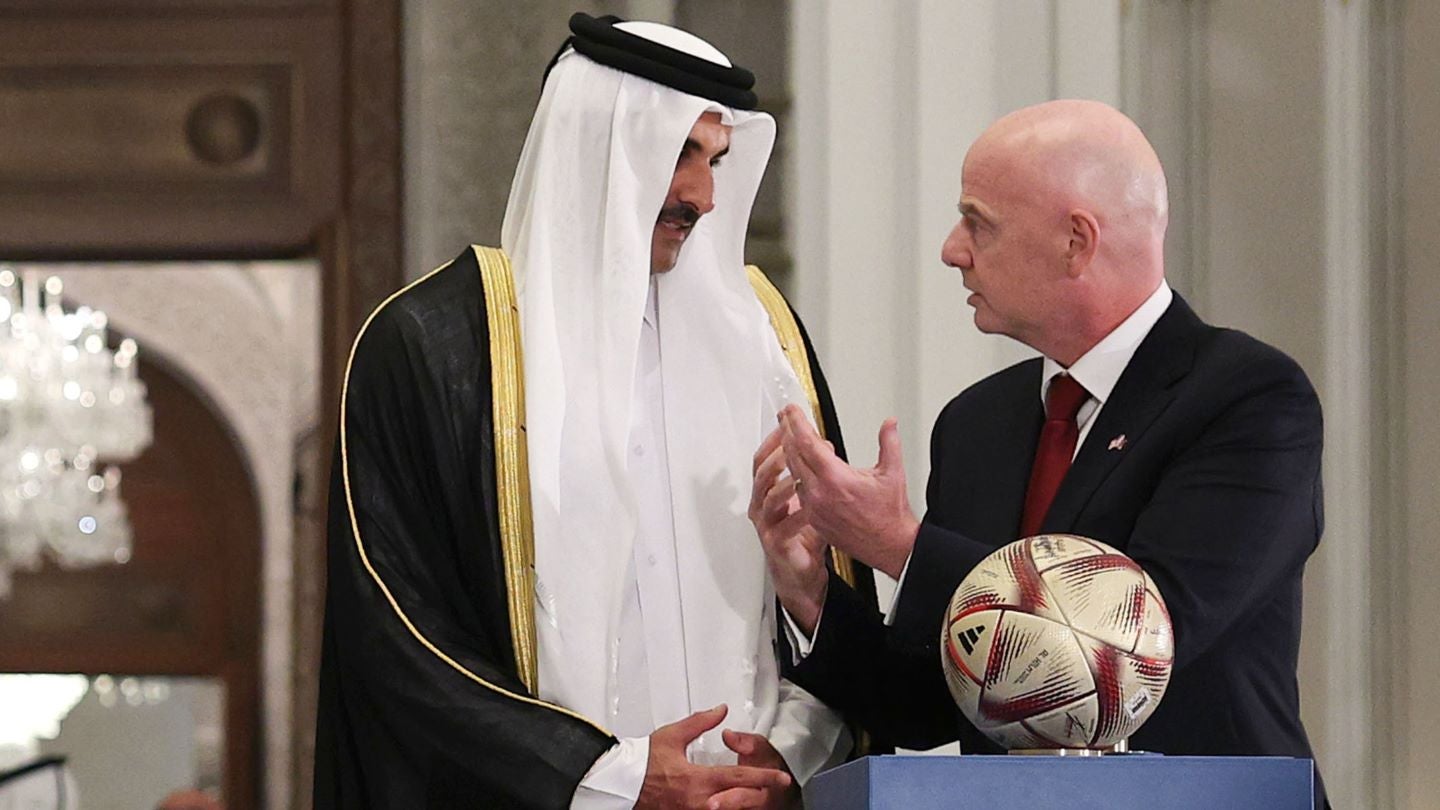
Tensions between soccer bodies FIFA and UEFA have risen after delegates from multiple European FIFA member associations walked out of the organization’s annual congress in Paraguay on Thursday in protest of president Gianni Infantino’s late arrival to the proceedings.
Infantino arrived in the South American country hours late for a scheduled 10.30am start time to his organization’s annual meeting after a trip to the Middle East this week along with US president Donald Trump to visit leaders from several Gulf countries, including Saudi Arabia and Qatar.

Discover B2B Marketing That Performs
Combine business intelligence and editorial excellence to reach engaged professionals across 36 leading media platforms.
The FIFA boss had prioritized meetings in the Middle East as he appeared at events involving the leaders of countries that hosted the previous World Cup (Qatar), the next men’s World Cup (co-hosted by the US), and the 2034 edition (Saudi Arabia).
Infantino’s delay meant the annual meeting started three hours late, much to the anger of FIFA members representing European soccer’s governing body UEFA, increasing an already fractured relationship between the organisations.
In protest at the 55-year-old’s delayed arrival, UEFA president Aleksander Ceferin led a group of European delegates, joined by English Football Association chair Debbie Hewitt, in staging a walk-out during a break at the event. A total of eight European members of the FIFA Council had departed.
UEFA accused Infantino of prioritising “private political interests” and said the late changes to the timings were “deeply regrettable” but “a point” had to be made.

US Tariffs are shifting - will you react or anticipate?
Don’t let policy changes catch you off guard. Stay proactive with real-time data and expert analysis.
By GlobalDataIn a statement, UEFA added: “The FIFA congress is one of the most important meetings in world football, where all the 211 nations in the world's game gather to discuss issues that affect the sport right across the world.
“To have the timetable changed at the last minute for what appears to be simply to accommodate private political interests, does the game no service and appears to put its interests second.
“We are all in post to serve football, from the streets to the podium, and UEFA members of the FIFA council felt the need on this occasion to make a point that the game comes first and to leave as originally scheduled.”
Several delegates from Concacaf – the North America, Central America, and Caribbean confederation – also decided to leave the congress early.
Infantino apologized to the delegation several times after his arrival, citing issues with his flight for the delay and insisting it was important he represented soccer at the political meetings.
He said: “As president of FIFA, my responsibility is to make decisions in the interests of the organization. I felt that I needed to be there to represent football and all of you.”
Despite their shared interests, FIFA and UEFA have frequently clashed over various issues, including governance, competition scheduling, and financial policies.





